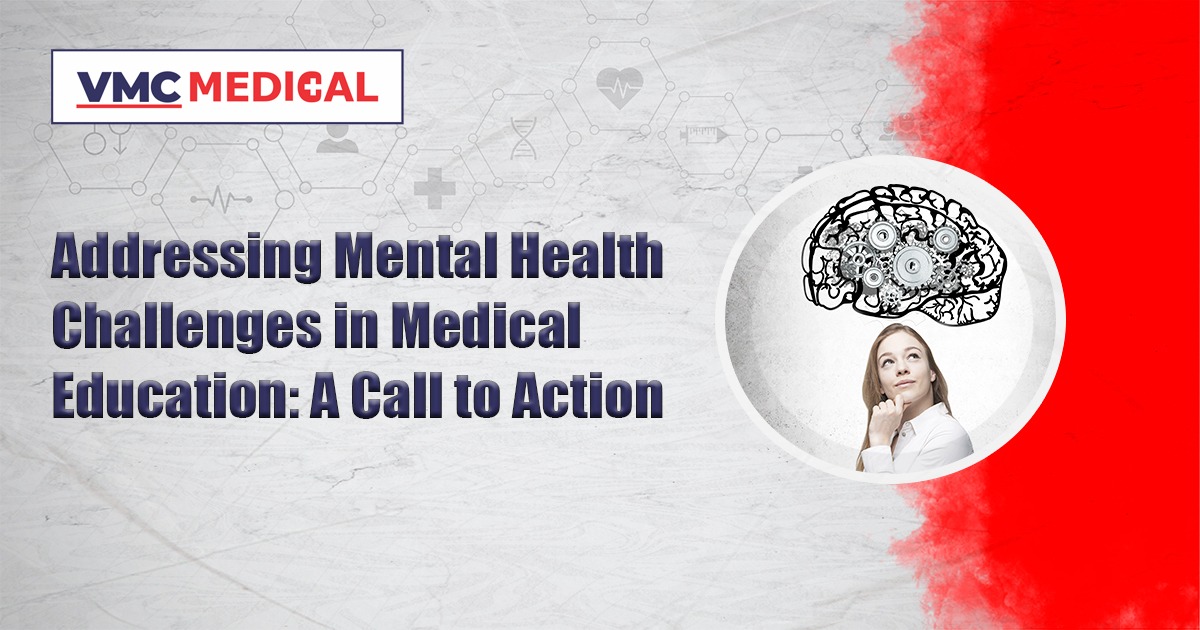Addressing Mental Health Challenges in Medical Education: A Call to Action
 Posted On
Posted On
638 total views, 1 views today
In response to the growing concern over mental health issues among medical students, the National Medical Commission (NMC) has taken a proactive step by forming a dedicated National Task Force. With the aim of comprehensively addressing the complexities surrounding mental health challenges and suicides within the medical student community, this task force comprises 15 members who are poised to deliver a comprehensive report by May 31.
The significance of this initiative cannot be overstated. In recent years, there has been a troubling surge in depression and suicides among medical students, highlighting an urgent need for intervention. Recognizing the gravity of the situation, the NMC, through its anti-ragging committee, has initiated this crucial endeavor.
The mandate of the task force is clear: to delve into existing literature and data pertaining to mental health and suicide among medical students, meticulously analyze the factors contributing to these challenges, and devise evidence-based strategies aimed at bolstering mental well-being and mitigating the risk of suicides. This initiative underscores a commitment to fostering a supportive and conducive environment for medical students, ensuring that they not only thrive academically but also maintain optimal mental health throughout their educational journey.
To achieve its objectives, the task force will embark on visits to medical colleges where incidents of suicides have been reported, enabling a firsthand understanding of the prevailing issues and challenges. Additionally, the task force will convene regular meetings, utilizing both virtual and in-person platforms as necessary, to facilitate robust discussions and progress toward actionable recommendations.
Transparency and accountability are paramount throughout this process. Monthly progress reports will be submitted to provide stakeholders with insights into the task force’s activities and achievements, ensuring that the objectives are met within the stipulated timeframe. Moreover, the task force reserves the right to enlist additional expertise to enrich its study and ensure the comprehensive nature of its recommendations.
The urgency of addressing mental health challenges within the medical student community is underscored by alarming statistics. Recent data obtained through RTI requests reveal a distressing reality: within the past five years, 119 medical students, including both MBBS and postgraduate students, have tragically died by suicide. Furthermore, the dropout rate among medical students stands at 1,166, shedding light on the pervasive nature of the challenges faced by this demographic.
Incidents of ragging, coupled with the pressure of academic expectations, have contributed to a distressingly common occurrence of suicides among medical students across various institutions nationwide. This sobering reality underscores the imperative for concerted action to prioritize mental health and well-being within the medical education landscape.
Closing Thoughts
In conclusion, the formation of the National Task Force by the NMC represents a pivotal step toward addressing the pressing issue of mental health challenges among medical students. By harnessing collective expertise and committing to evidence-based interventions, this initiative holds the promise of fostering a supportive and nurturing environment that enables medical students to thrive both academically and emotionally. It is a call to action for all stakeholders to prioritize mental health within medical education, ensuring that the next generation of healthcare professionals emerges resilient, compassionate, and equipped to navigate the demands of their profession.




